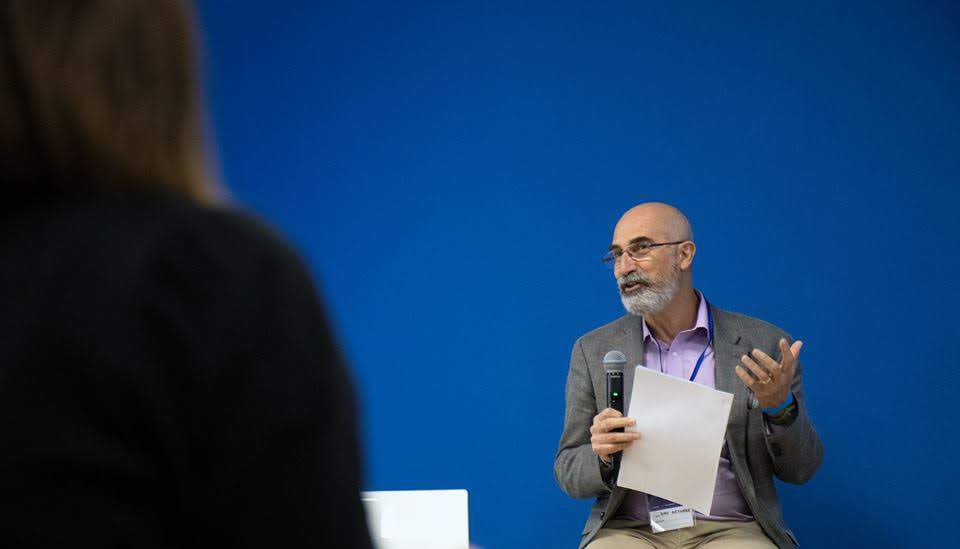Malta’s geographical position, its mature financial services sector and diversified economy, and of course its membership in the European Union make it a nearly perfect place to launch a start-up. However, although start-ups find plenty of help through the entire idea-to-market lifecycle, with structured mentorship and a number of incentives, they find it more difficult to raise the kind of capital required to take their project to the next level.
Funding, which remains far behind other elements of the start-up ecosystem, despite admirable efforts to focus local investors’ attention to the space.
“This means that even those companies making use of Maltese assistance initially, often incorporating in Malta, are forced to look further afield for willing investors,” explains Alex Borg, managing director of GBU Ventures and a consultant to start-ups, SMEs and investors, in comments to BusinessNow.mt
He speaks from considerable experience, having designed and managed the Malta Information Technology Agency (MITA) Innovation Hub’s YouStartIT accelerator programme.
Running from 2016 to 2020, the accelerator, Malta’s first start-up incubator, assessed around 600 projects, with 32 chosen to participate across six cohorts. Some €55 million have been raised by the participants, the bulk of which by Weavr (€40 million), Wirestock (€3.3 million), and a few others like early dementia screening device producer BrainTrip, visually impaired AR solution provider Holoroad, and sustainable mobility despatcher SiWeGO. The hugely popular student app FreeHour, who are now internationalising to Italy, were also a product of YouStartIT.
“The results were very good considering the programme was funding early stage start-ups,” says Mr Borg. “Many of these were essentially founders with an idea that we helped get to market. The results were very compelling when compared to other similar early stage accelerators in Europe and the UK.”
Accelerators and incubators function as “schools for start-ups”, breaking down a business idea into manageable components. Mr Borg describes the process: “We advise them, plug in mentors, and take them down a three-to-four month process to get ready for demo day, by when they would have validated their idea using certain methods like the lean start-up method and the value proposition canvas, amongst others.”
He adds that investments are very different to what is shown on television, typically taking a few months of intense negotiations and due diligence before a decision is finally made.
The start-up failure rate is very high. It is estimated that only one in every 20 start-ups are successful. However, that does not mean that the resources spent are wasted, argues Mr Borg: “There are huge multipliers from the 19 out of 20 that fail.”
“First of all, failure is a learning process. People who fail go back in the industry or try again and usually get better at starting up. Plus, they don’t fail immediately. They work for two or three years, they buy services, consume, and employ people, and especially if they’re, foreign they rent property and go to restaurants, so this money filters through to the local economy.”
Turning back to what is lacking in the Maltese start-up ecosystem, Mr Borg says local investors typically operate with a mentality that is not suited to venture investments.
“We do have an entrepreneurial mindset, but it is a brick and mortar type of entrepreneurship. We like real estate, restaurants, tangible businesses. We don’t invest so much in technology. Many family businesses tend to want to acquire a bigger stake in the company than what would be considered normal abroad, and expect more immediate returns. This simply doesn’t gel with start-up realities. You need a horizon of three to five years, at least.”
He uses a football metaphor to illustrate the point: “We all want to have a Ronaldo or a Messi, but you don’t get these without nurseries. Similarly, companies need early stage incubators and accelerators, which are usually funded by governments or municipalities. They draw in talent, grow it, develop it, and move it from proof of concept to commercialisation.”
With the Malta Development Bank gearing up to move into the space with a fund for start-ups, could things be changing in the near future?
“Ironically, it might do the opposite,” argues Mr Borg. “This will use EU funding, so investors considering startups might now wait for it to come into play in order to reduce their direct exposure.They will wait for it to become available and use it to hedge their bets instead of doing the hard work of coordinating between themselves and pooling their money. So it might, to some extent, slow down the natural growth of interest in this sector.”
Either way, Malta is definitely making its mark in the advanced technology start-up space, and plans to continue doing so with everything from scholarships to those studying Artificial Intelligence (AI) to the launch of a start-up visa.
As for Mr Borg, he credits his time spent working on the YouStartIT accelerator for teaching him about every facet of the corporate world. “I learned much more accelerating start-ups than in the 25-30 years of my previous corporate experience. You cannot approach it from a know-it-all perspective. It’s a two-way street.”
Malta’s R&D spend stays level at 0.6% of GDP
Total expenditure of research and development amounted to €121 million in 2023, an increase of €16.1 million
Most Maltese scam victims don’t know about dispute resolution service, study finds
In this day and age ignorance costs, as scammers are getting increasingly clever
Extreme heat set to leave 2.5% dent in Malta’s GDP by mid-century
The country is set to see GDP impacts from extreme heat






